I know, it’s been a while. I’ve been tied up with the book, the podcast, live Twitter Spaces chats (we’ll do one tonight!), my two kids under three, and some side work for SuperDraft, a really cool new daily fantasy app that you should download. I don’t want to overpromise and underdeliver, especially with that book deadline looming this summer. But I definitely intend to write here more during the playoffs. Thank you to everyone who has supported my work over the years..
Imagine being a new star in your first home playoff games. You’ve spent all season announcing yourself to the world. You’ve cemented you place in the league’s establishment with consistent excellence and fleeting moments of transcendence. You got the national attention and local affirmation that made those long hours in empty gyms worth the trouble. You’ve made it!
Then the playoffs come around to reveal the steep price of that hard-earned recognition. The adulation you desperately craved is now reflected in a single team’s gameplan, crafted by the world’s most innovative coaches for the globe’s best, hungriest, and most focused opponents. For the first time in their NBA lives, you have all of their attention too. You’re realizing that there’s always a bigger fish.
The home crowd pours extra gasoline on top of that anxiety fire. They expect you to wow them. They need you to bring the joy you’ve brought them to a larger audience. You can hear them on every play, louder than you’ve heard them all season. You already want so badly to showcase your best self to the viewers you can’t see all around the world. They’ve read about you and are tuning in to see if you’re worth all that fuss. But now you also hear your own fans ringing in your ears. You see their hopes reflected in yours. You desperately want to avoid letting them down too. Oh, and you also want to win the game, which you’re expected to do because you’re at home in the NBA Playoffs.
Imagine all that pressure, that anxiety, those butterflies. Imagine all of it after (mostly) playing in empty gyms for a full calendar year. High-level professional athletes have trained their whole life for these moments. They’re here because they know how to gain strength from the pressure of expectations. But this is the pinnacle of their craft, the final trial in their lifelong hero’s journey. Nothing they’ve been through quite prepares them for it. You never really know how they’ll handle their new burden.
Julius Randle was not the only star of this ilk to face this crossroads. Devin Booker, Trae Young, Ja Morant, and Luka Doncic did too, and all four had been electric before Booker’s Game 3 struggles. But Booker had Chris Paul to set the tone, and the other three benefitted from hostile crowds that sharpened their focus and lowered expectations. (Game 3 is going to be fascinating for all three).
Randle had come the furthest of them all this year. Nobody expected him to be Items 1-5 on a playoff team’s scouting report. On top of that, he was about to confront the league’s largest, most rabid, and arguably most malnourished fanbase, one that hadn’t seen most of his season-long exploits in person. I feared for him.
So I wasn’t surprised that Randle was tentative and apprehensive (shoutout Clyde) through the first 75 percent of the Knicks-Hawks series. His team was on its way to an 0-2 deficit because he seemed to have a thousand thoughts racing through his head at once. He looked overwhelmed at the same time his star counterpart appeared unflappable. He was being swallowed by a bigger fish.
That’s why we may then look back on Randle’s second half on Wednesday as a turning point in his career. He’s had better halves statistically, and he wasn’t the only reason the Knicks turned a double-digit deficit into a crucial victory to even the series. The story of this series still has many chapters to go.
But I suspect that May 26, 2021 will be a crucial day in Julius Randle’s own story. For the first time in his career, he saw a playoff defense geared to stop him, adjusted his approach mid-game, and bent it to his will. He took it it by doing what he wanted to do, not what they wanted him to do.
If the Hawks and Knicks switched jersey colors, you’d have trouble telling which team Tom Thibodeau coached. Atlanta’s defensive strategy in this series is straight out of the Thibs playbook. It has one rule: keep Julius Randle away the middle of the floor. Instead, overplay him to the baseline, bring extra attention to that side of the floor, and force Randle to stare at multiple defenders. It was the scheme Thibodeau made famous with the Celtics and Bulls, but shoved back into his own star player’s face.
It’s a smart strategy because the Knicks’ spacing is shaky for a modern NBA team. They’ve spent all season using Randle alongside a center without shooting range to shore up their own defense. It’s hard to argue with the results, but the problem is the Hawks know Nerlens Noel and Taj Gibson are non-threats offensively unless they stand underneath the hoop. That makes it easy for Clint Capela to do a 2008 Kevin Garnett impression and ignore those players to watch Randle. Whenever Randle looked up, he saw Capela lurking. Always lurking.
The limitations of the other Knicks players helps Capela’s spying. Though New York shot a high percentage from downtown as a team, they don’t really have many “Oh shit!” shooters (to steal a phrase from longtime NBA executive Ed Stefanski). Reggie Bullock has a sweet stroke, but can be run off the line. Alec Burks hit nearly 42 percent this year, but only cleared 40 percent once in the previous eight seasons. R.J. Barrett and Immanuel Quickley are still in “prove it” mode, though both are indeed proving it more often. Derrick Rose shooting is a win for the defense. Elfrid Payton shooting is like winning the lottery. The Hawks are happy to sink their other three players off those guys to cover the ground Capela abdicated.
But the Hawks’ strategy is especially devious because it strikes at the heart of Randle’s dramatic improvement. Tired of his (deserved, at least to me) reputation as a low-IQ player, Randle got in better shape, fine-tuned his outside shot, and learned to read defenses to find open teammates. That work didn’t just earn him the Most Improved Player. They also transformed his NBA identity from energy guy to master manipulator. He didn’t just play the game like most pros. He now thought the game on a higher level.
Now, the Hawks were testing the fruits of that labor. So you think you’re a master manipulator, huh? Fine. Let’s see how smart you really are. They used a coverage that a thinking player could beat, hoping to bait Randle into reacting instead of acting.
For three halves and change, Julius Randle reacted. They were begging him to go baseline and he was happily obliging.
They did so even if going baseline meant letting Randle go left, which he loves to do.
This was, of course, a trap. Randle’s primary defender knew Capela was lurking behind to deter Randle’s path to the basket. Once Randle meandered to the baseline, Capela’s presence forced him into stepback jumpers that were heavily contested and often compromised the Knicks’ transition defense.
That’s if they let him get a shot up at all. The other reason to force Randle to the baseline is to limit his passing ability. It’s easy to say Randle should give the ball up quicker, but who’s he supposed to pass to? Gibson’s positioning removes space for a cutter, and the Hawks are on top of any potential crosscourt passes.
Randle was thinking the game, but only on a superficial level. He was taking what his defender was giving him (the baseline), but that wasn’t the same thing as what the defense was giving him. Worse, his early attempts to suss out the difference only further paralyzed him. This turnover midway through the third quarter of Game 2 was the low point.

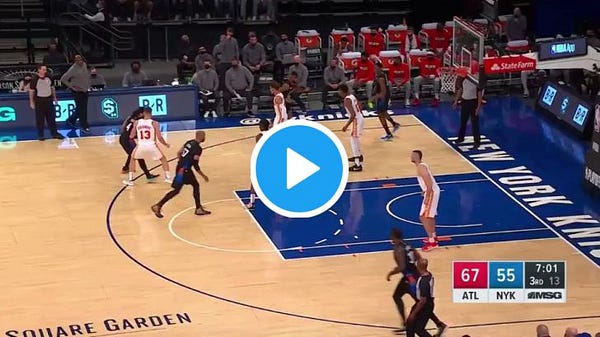
To break this coverage, Randle had to go where it didn’t want him to go. He had to get to the middle of the floor and make Capela move to meet him. That’s exactly what he did from that point on, and it saved the Knicks’ season.
The first key was to feign the weakness he had shown for the whole series. Randle realized his primary defender’s job was to force him baseline. He also realized that his primary defender was used to him doing just that and had picked up on those cues.
It was time to subvert those expectations. From the third quarter on, Randle pretended to get duped to make his guy react and then cut back to the middle of the floor. That made Capela react to him and opened up better opportunities for himself and teammates.
His first successful foray of this ilk happened two minutes before that turnover. Randle appeared to be going left, only to quickly jab right, get by Bogdan Bogdanovic, and draw Capela off Gibson. Taj missed the layup, but this was a harbinger of things to come.
Four minutes later, Randle drove a closeout and wove back to the middle instead of continuing to the baseline. This collapsed Atlanta’s defense and enabled Randle to find an open Rose.
A few minutes after that, he gave the Knicks the lead by decoying a lefty drive before coming back to his right for a rhythm jumper.
He swiveled back to his right again to set up a quality corner three for Quickley near the end the third quarter. The result was bad, but the process was good.
Those plays set up two checkmate possessions down the stretch. Bullock’s massive trey to put the Knicks up five only happened because Randle played Capela and Young like a fiddle, constantly spinning to the opposite direction they expected. Both relaxed when Randle went back left, thinking their job was done. Yet that move was simply a trigger for Bullock to cut and Randle to turn back to the right to find him.
Two minutes later, Randle made Capela and the Hawks dizzy with a series of spins. The first one set up the second, getting him by Gallinari, drawing Capela, and giving Gibson a chance to redeem himself for his third-quarter miss.
The Knicks helped Randle by letting him attack on the move before the Hawks could set their defense up. His first and last buckets came as the screener in pick-and-rolls with Rose on the left side of the floor, which relieved some of his shot-creation burden. New York’s big men also set drag screens for Randle in transition, allowing him to attack downhill. Those easy buckets undoubtedly helped Randle’s confidence.
But the real key was Randle’s own mindset change. We love to discuss coaching adjustments in the playoffs, zeroing in on set plays, defensive schemes, and substitution patterns. (Just ask Hawks coach Nate McMillan). We give them the credit when their teams respond and blame them when they don’t. I do it all the damn time too.
But that discourse obscures the true burden stars must carry in the playoffs. At the end of the day, you’re the guy who determines if your team breaks your opponents’ strategy or gets broken by it. We measure the game’s best players by how often they consistently do the former. That is how playoff series are won and lost.
We’ll see if Randle’s adjustments hold through the rest of the series. Much larger tests await. But Randle and his fans should take a moment to savor this Game 2. It was his first step into a larger superstar world.










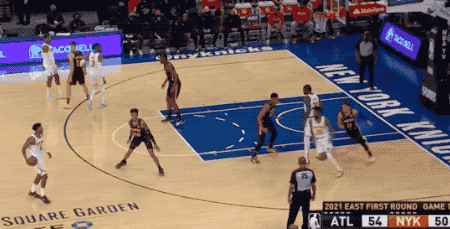
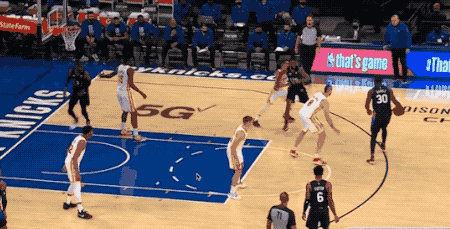

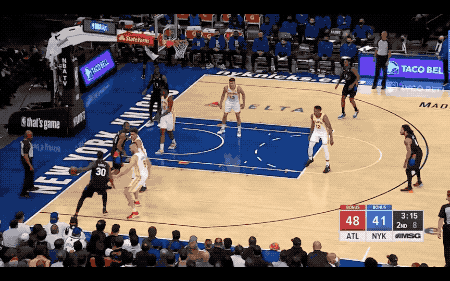
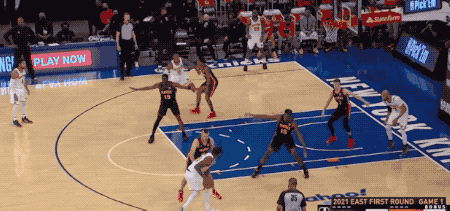
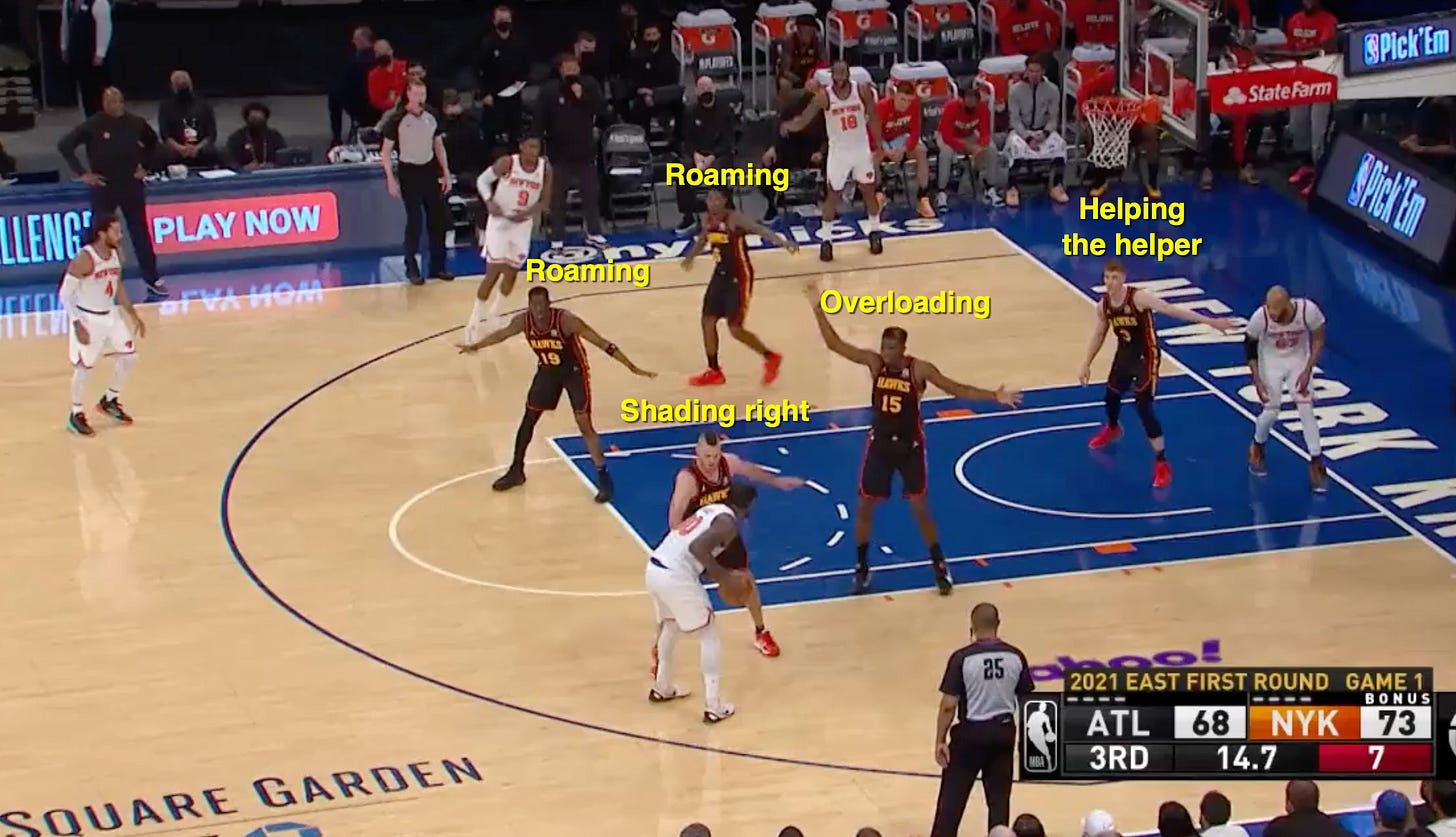
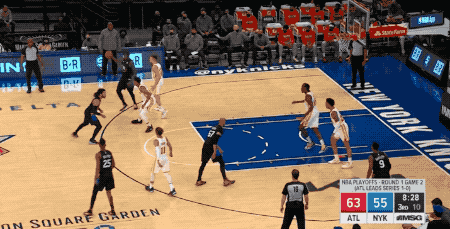

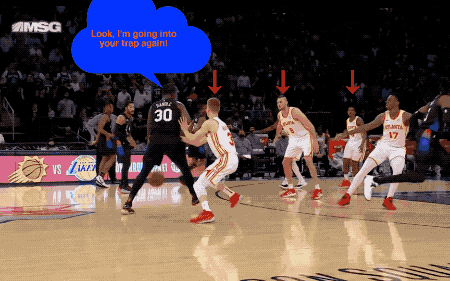
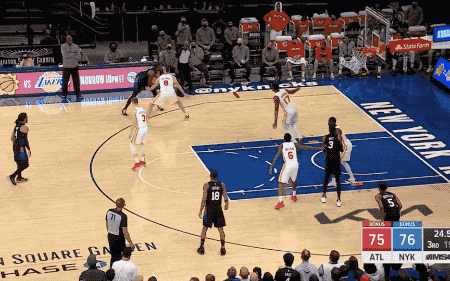
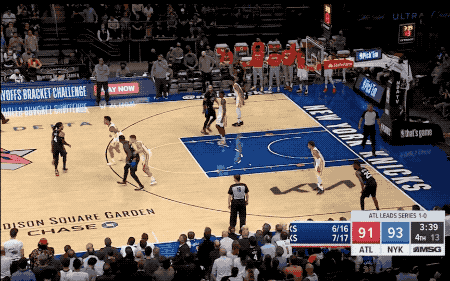
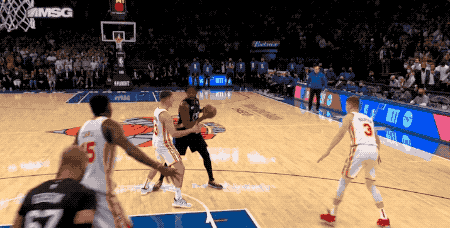
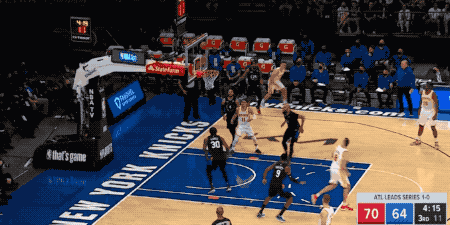
good blog